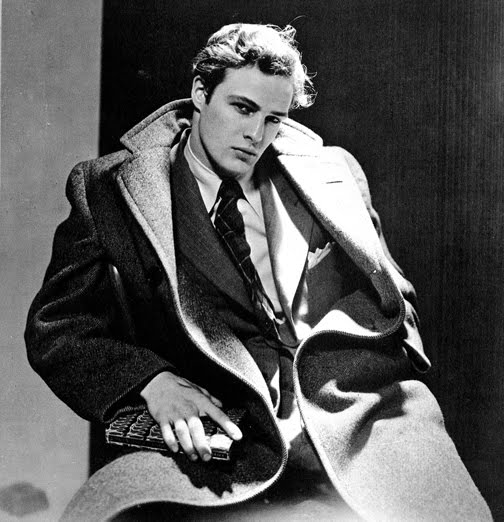
Marlon Brando, born on April 3, 1924, was an actor with an intensity like no other. He made his name after Tokin' Woman Tallulah Bankhead, who turned down the role of Blanche DuBois written for her in A Streetcar Named Desire, suggested "the cad" should play Stanley Kowalski. Brando went on to make motorcycle rebels cool in The Wild One (1953), and won his first Best Actor Oscar for On the Waterfront (1954).
In his book Songs My Mother Taught Me, he wrote, "So many things happened during the sixties and seventies that now a lot of those years are a blur. I was still trying to give my life some meaning and enlisted in almost any campaign I thought would help end poverty, racial discrimination and social injustice. But that wasn't all I did in those years; there was a lot of partying, getting drunk, having fun, jumping into swimming pools, smoking grass, lying on beaches and watching the sun go down. During the sixties in Hollywood, everybody was sleeping with everybody."
On filming Reflections in a Golden Eye (1967) with Elizabeth Taylor and director John Houston, Brando wrote, "John did a lot of heavy pot smoking on that picture, and before he filmed one scene he gave me some marijuana, which I smoked. Before long, I had no idea who or where I was or what I was supposed to be doing. The only thing I knew was that everything seemed okay, that the world was very funny and that John thought so, too. I could barely stand up, and if someone asked me a question I'd say 'What?' about five seconds later, but somehow I managed to get through the scene."
On making the 1968 movie Burn! with director Gillo Pontecorvo in Columbia, Brando wrote, "Making that movie was wild. Everybody smoked a strong variety of marijuana called Colombian Red, and the crew was stoned most of the time." He turned down roles in Butch Cassidy and the Sundance Kid and The Arrangement, directed by Elia Kazan (On the Waterfront), to work on the film. He wrote, "I did some of my best acting in Burn!" and called Pontecorvo one of the three best directors he ever worked with, alongside Kazan and Bernardo Bertolucci.
Brando's career spanned six decades. When he won the Academy Award for The Godfather (1972), he famously sent Sacheen Littlefeather to accept for him and speak about the mistreatment of Native Americans in film. He testified before the California Assembly in support of a fair housing law, joined picket lines protesting discrimination in housing developments, and took part at a 1975 protest rally against American investments in South Africa and for the release of Nelson Mandela.
Another recent centennial to celebrate: Sarah Vaughan.
No comments:
Post a Comment